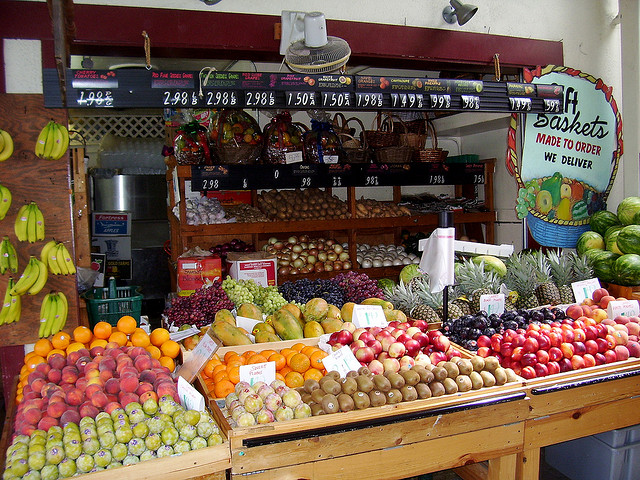There is an intuitive appeal to thinking globally and acting locally: if thinking globally can be overwhelming, acting globally can be positively paralyzing—most of us simply do not know where to start.
The problem with thinking globally and acting locally is that our best thinking and deepest commitments tend to arise from the projects upon which our minds are most engaged; hence, local actions tend to breed small minds.
So after having learned about global challenges like climate change and overpopulation, we tend to grab at ways to make an impact, changing habits and participating in local projects.
Such a response to overwhelming forces, seemingly beyond our control, is in many ways healthy and sane. It was the basic sanity of these sorts of solutions that led me to make a permanent shift to vegetarianism at age 17, to stop driving at age 23 and to spend a good decade of my life starting sustainable cooperatives.
But if we are to solve global challenges like climate change, food security, genocide and nuclear proliferation, local solutions will not be enough.
Without multiple moral revolutions in everything from diet to transportation to habitation, spread widely across the world, changing personal habits will not make much of a dent in rising temperatures. Nor will most local projects scale up very well or even address the right issues when they do.
Take the quintessential local projects: community gardens and farmers markets. They can enrich the lives of people participating in them, reduce alienation, build community, and deepen environmental commitments—but they are difficult to replicate and thus slow to spread, and they would do little to reduce global warming or feed the world.
Several studies suggest buying food locally barely makes a dent in greenhouse gas emissions, presumably due to all of those farmers driving small amounts of food back and forth in gas guzzling pick-ups. And most studies suggest the yields of organic agriculture tend to be only about 80 percent those of high-input commercial agriculture.
Thus, scaling up organic production would probably require opening up vast swathes of new cropland, which will require the destruction of much rainforest. This in turn could lead to runaway global warming. Simple solutions, adapted locally and scaled up, will simply not be enough and actually often turn out to be counter-productive. Thoughts like these can make thinking globally overwhelming, but if we are serious about solving global challenges like climate change, we cannot avoid it.
If we want to solve the great global challenges of the twenty-first century we will need to learn how to think globally in a more mature and balanced manner.
We will need to question more carefully how local projects scale up and how work on one issue impacts another. Food security, climate change, overpopulation, rainforest destruction, failed states and development are all interrelated.
Development usually brings down birth rates, stabilizes states, increases energy efficiency, brings about more productive crop yields and decreases hunger. But development also tends to result in greater resource use, more greenhouse gas emissions and more meat-eating (which takes vastly greater amounts of land to sustain than plant-based diets).
Solutions in any one of these domains will often cause problems in the others. If we cannot think deeply about how these issues are interrelated and work toward solutions that bring about positive developments across the board, we will make a hash of things.
This is the thesis of my book, Convergence: The Globalization of Mind. Few have given much thought to the central challenge. It is unnerving to think that the best people, doing the best work in the world may be disoriented—that is to say that they may have oriented their thinking around an unworkable set of solutions.
Being an ethicist and a successful community organizer, this thought made me especially uncomfortable. It meant that much of the work I prided myself on may not have been so effective and that I would have to learn to do things differently.
But the problem lies not only in our thinking but in our identities as well.
If we continue to identify with our smaller tribes—religious, ethnic, or national—it will be difficult to come together and solve these great global challenges.
This is where environmentalists in general tend to excel. Environmentalists tend to be the first to proclaim themselves citizens of the earth. Many environmental thinkers, like Donella Meadows and Peter Senge, are pioneering systems thinkers, while others, like Paul Ehrlich, Lester Brown and Francis Moore Lappe have schooled two generations in global thinking. They know how to think big and they do it well.
Reasoning through big, complex global problems will need to become as natural for us as thinking about our own countries’ next election or the impending debt crisis. But the world is vast and thinking through these issues can be overwhelming.
We must consider, care for and commit to more things, and figuring out how we might do so takes some hard thinking and inner cultivation. Reasoning through big and complex global problems without being blown apart inside will require that we develop a new relationship to the things we know.
Author: Theo Horesh
Editor: Emma Ruffin
Photo: Flickr







Read 2 comments and reply